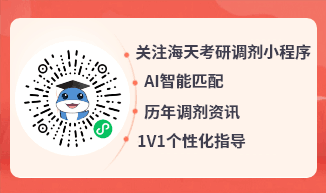2020考研英语你了解的代词有哪些?
人称代词是指直接指代人或者事物的代词。在英语和汉语中都有三种人称代词即:第一人称(我;我们),第二人称(你;你们),第三人称(他、她、它;他们、她们、它们)。那么除了有人称代词之外,还包括指示代词、反身代词等等。接下来,海天考研给大家详细解析一下这些代词的用法:
一、人称代词
1. 一般规则
1)人称代词的使用顺序为第二人称、第三人称、第一人称。
如:You, she and I are sincere friends.
2)人称代词与表人的名词并列时,顺序为“名词+人称代词”,但you常位于名词前。
如:You, Marry and I must be in a common effort.
3)与其他代词排列时,人称代词在前。
如:She, I and some others like pageant(露天表演)。
2. 当由every或each修饰并由and连接的两个单数名词做主语时,后面的代词要用单数;若这两个名词一个是阳性,一个是阴性。可用he/his/himself来代替。
如:Every mother and daughter in town has been invited to the dancing party she is longing for.
Every man and woman has his right to vote.
3. 当由or或nor连接的两个名词或代词时,代词要与or 或nor后面的名词或代词在性和数上保持一致。
如:Either Marry and or her classmates study harder than they did before.
4. 人称代词在比较分句中做主语用主格,做宾语用宾格。
如:I trust you as much as her. 但在非正式语体中人称代词在比较分句中做主语,也可以用宾格,特别是这类代词带有all, both做同位语,通常都用宾格。
二、指示代词
1. all, both 与of 连用时,如果of后是名词,则可省去of,但of后如果是代词,of则不可省。
如:All the old men are hale and heavy.
Both of them are idle fellows.
All和whole 在修饰单数可数名词时,意思往往是一样的,然而次序不同,all用于冠词或其他限定词之前,而whole前必须有冠词或其他限定词。
如:All the city is burning.
The whole city is burning.
2. no one = nobody ,仅用于人,不能与of 短语连用,谓语动词用单数。None既能指人,又能指物,谓语动词既可用单数,也可用复试,也可与of连用。
如:No one has read Paradise Lost up till now.
None of us has seen an overpass.
“none other than” 是个固定结构,意为“就是”,表示强调
如:The new arrival was none other than the President.
3. much 常用语下列用法中
(be) much of a 很,更;了不起的,称得上……的
not so much … as 与其说……,不如说……
(with) not /without so much as 甚至于不
much more = still more (用于肯定句)更加
much less= still (even) less(用于否定句)更不,更说不上
so much so that 到如此程度,以致
4. everyone, every one, anyone, any one
everyone = everybody,只能指人,不能与of 连用,而every one 可指人,也可指物,可跟of 短语。
anyone, any one 用法同上,可用于肯定句。
5. 其他不定代词构成的短语
anything of 一点儿,一点;……的味道 (用于否定句、疑问句或条件句)
something of 在某种意义(程度)上 (用于肯定句)
everything of 一切事物,重要的事物;完全
nothing of 根本不,一点也不是
anything but 除……之外的任何事物;根本不,绝不
nothing but 仅仅
三、反身代词
1. 反身代词做介词的补足成分。
by oneself 单独地,独自地
for oneself 亲自地,为自己
of oneself 自动地,自然而然地
in oneself 自身,本质上
to oneself 供自己用,专用
2. 反身代词用于“动词+反身代词+副词”的固定搭配中。
如:He took himself away. 走开
She often puts herself forward. 摆架子
Carl played a joke on Bob and gave himself away by laughing. 露出马脚
3. 反身代词用于“动词+反身代词+介词”的固定搭配中。
如:The work addict surrendered himself to despair. 陷入困境
The Earl always prides himself on having a glorious past. 炫耀
4. 在anyone, no one, nobody 等代词+ but 后可用第一、第二人称反身代词做主语,但不能用第三人称反身代词。
如:Anyone but yourself (myself) had been to the island girded by the sea.
2025考研人数达388w,考研热度依旧火热!如何备战2026考研?哪个考研专业适合自己?在职考生如何备考?考研知识点繁多,择校困难大,和海天考研咨询老师聊一聊。网课面授多项选,专业辅导1对1,全年集训随时学!









